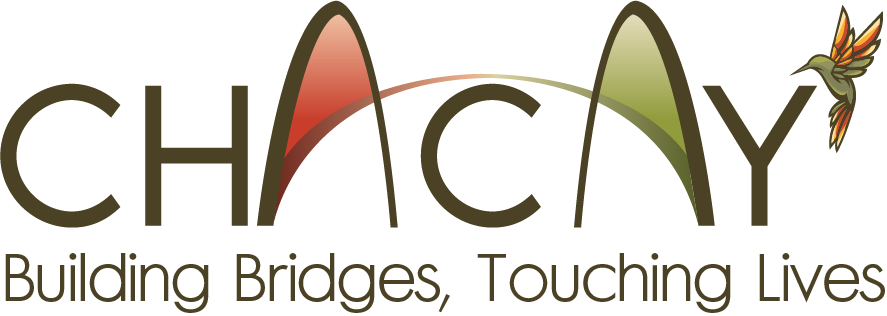Our story
BEYOND CHACAY FOUNDATION
WHAT WE DO
The Beyond Chacay Foundation (BCF) works with 16 local and international partners, including leaders in the Ministries of Education, Energy, Health and Telecommunications, the National Park and the three municipalities. Furthermore, we partner with local businesses that enable intra and internet services to schools and health facilities. BCF also partners with FUNCAVID, Fundación un Cambio por la Vida, a local Galapageño family run not-for-profit established in 2010 that has, like BCF, an extensive local contact network for accomplishing initiatives.
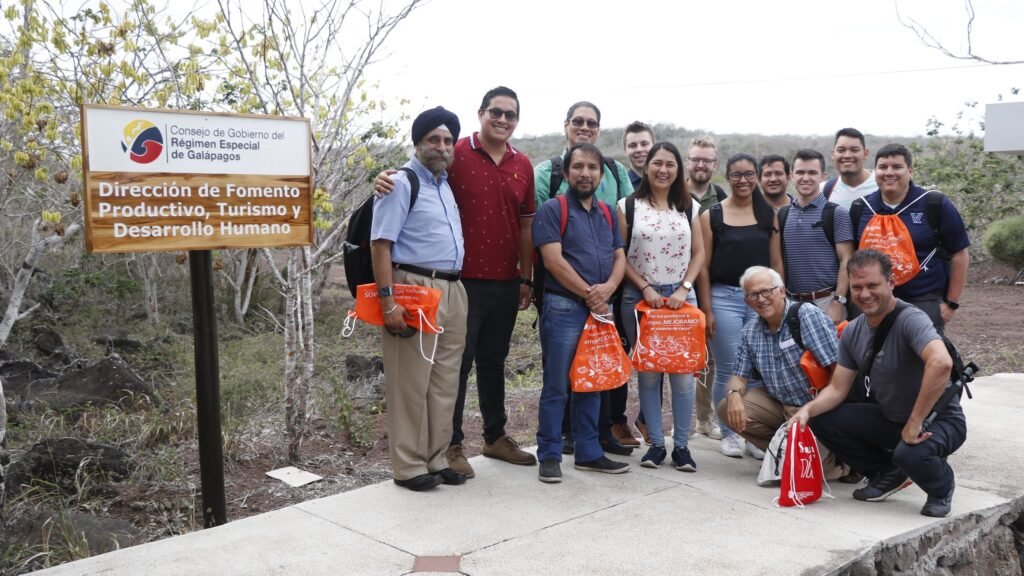
Of particular value to BCF is the FUNCAVID methodology which aligns with BCF’s value of respecting local opinion, self assessment, and definition of needs. FUNCAVID gathers ideas about community projects that must be led by a resident of the Galapagos and related to themes of education, biodiversity conservation, gender equality, & management of potable water. Each project must include a summary, clear objectives, a project calendar, and a budget.
OUR HISTORY
Beyond Chacay Foundation launched EcoHelix, on San Cristobal island, working with student government undergrad leaders from the Universidad San Francisco de Quito and 55 local high school students. Funding partners included the Galapagos Conservancy (https://www.galapagos.org/), the Ministry of Education Regional Office, ElecGalapagos (the electric utility company). Support also came from the Governor of the Islands, the Galapagos National Park, and the mayor.
The EcoHelix model promotes economic and ecological awareness in collaboration with stakeholders from the private, public, and civic sectors as well as academia and the media.
2013
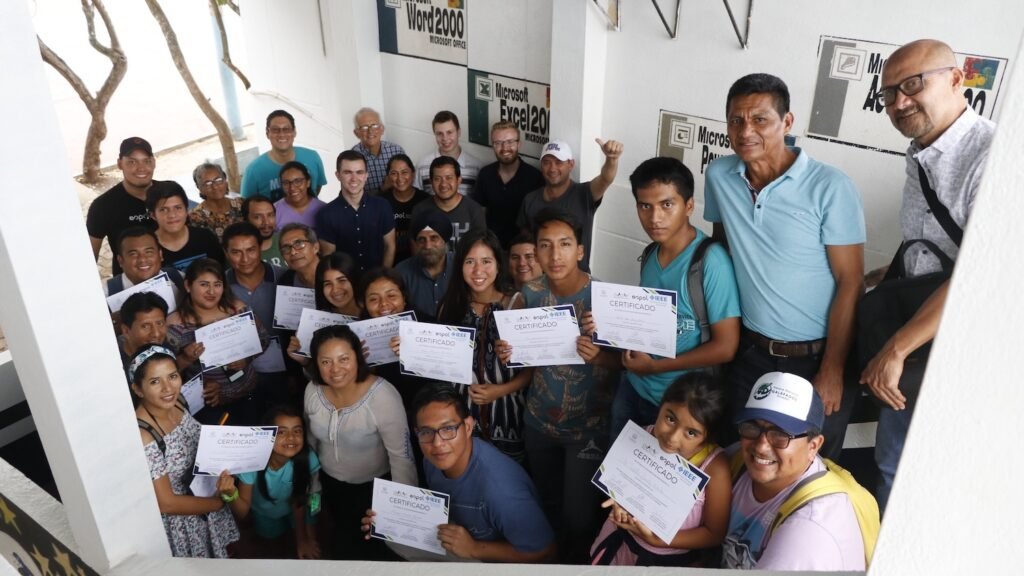
2014 to 2018
BCF expanded the EcoHelix initiative to two more of the four populated islands, Santa Cruz and Isabela. This leaves Floreana as the fourth and last island needing inclusion. The expanded EcoHelix initiative included entrepreneurship workshops and the support of the following universities: University of Denver, University of Calgary, and a five year commitment from Massachusetts Institute of Technology, Sloan school MBAs, resulting in an honorable mention from IBM, and harnessing WATSON to create tailored programs for tourists.
2018 to
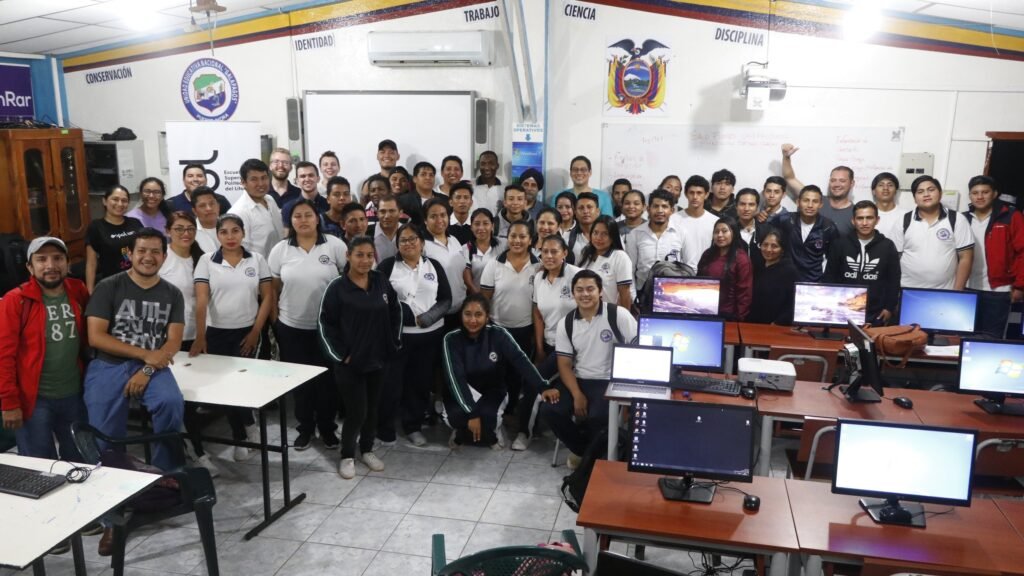
2023
BCF launched GRECO (the Galapagos Community Education Internet) with support from local stakeholders including the Galapagos Governing Council, the National Park, ElecGalapagos, the mayors of each island, and the Ministry of Education. The GRECO initiative received $300K from the Institute of Electrical and Electronic Engineers and the Internet Society supporting collaboration with Villanova University. BCF was then able to build the internet infrastructure, connecting 23 of the 24 schools on the islands.
2023 to 2024
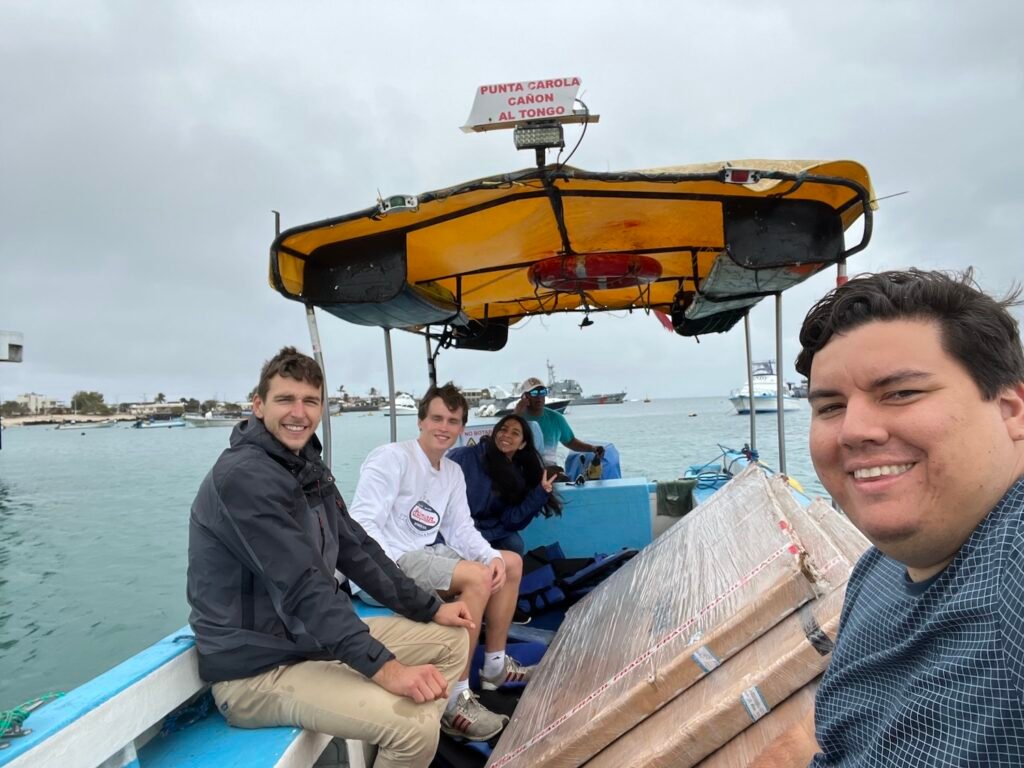
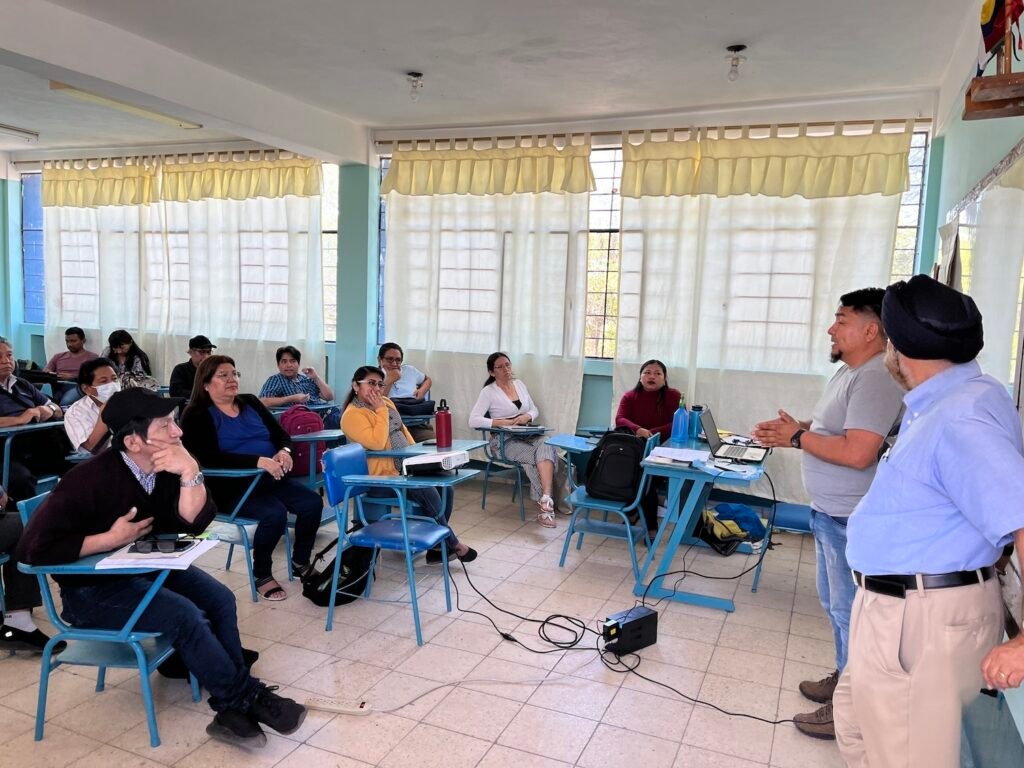
BCF extended the signal and promoted the socialization of the GRECO to provide digital access for local populations, expand entrepreneurship training and mentoring, and implement solar technology to generate electricity through the installation of solar panels and charging stations for electric bicycles.
As BCF has not yet met the Internet needs of all four islands, the key priorities for 2025 and beyond are:
Extend the internet signal from the 24 schools to communities and local businesses.
Establish a telemedicine link, in collaboration with the Ministry of Public Health, to island medical facilities, especially on Floreana, the smallest island and least accessible.
Build capacity for local leadership, community digital literacy skills, training aspiring entrepreneurs, and creating content that will ensure that GRECO becomes a valuable network created of, by, and for the residents of the Galapagos Islands.
Board President
Founder & Board Vice President
Donate Now !
HELP US
We want to improve education in the Galapagos Islands, provide schools with free internet connectivity, to empower education and provide digital tools to encourage entrepreneurship.
